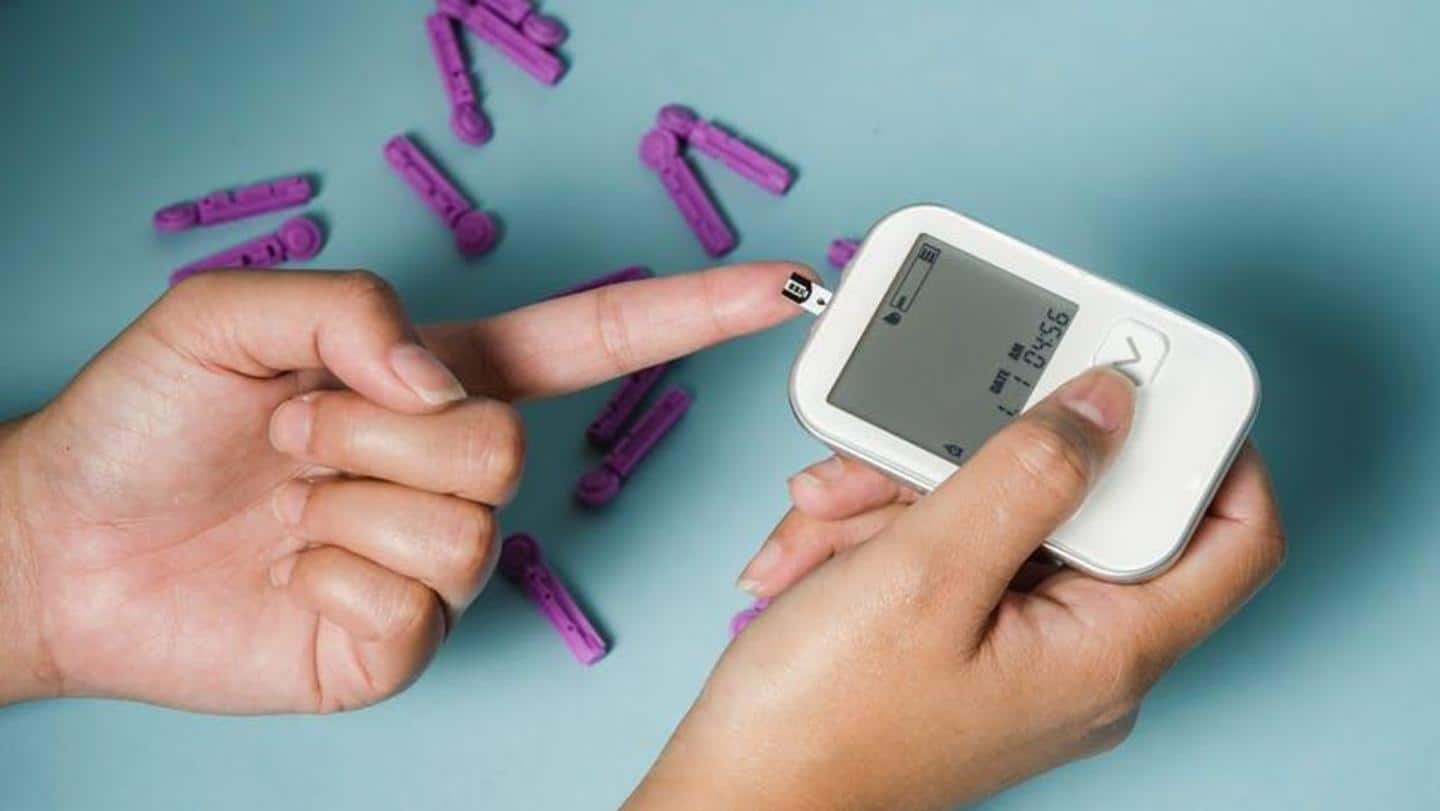
5 ways to lower your blood sugar naturally
What's the story
Also called hyperglycemia, high blood sugar usually occurs when your body has low insulin or cannot use the insulin properly.
High blood sugar is usually associated with prediabetes and diabetes.
If left untreated, it can lead to increased urinary frequency, headaches, and fatigue.
Here are five ways to lower your blood sugar naturally by maintaining a healthy lifestyle and changing your dietary habits.
Context
Here is what our expert says
A regimen that combines regular low to moderate-intensity exercise (eg: brisk walking) with a balanced diet can help reduce the blood sugars naturally.
Fruits, vegetables, and whole grains that have high fiber content along with complex carbohydrates provide sustained release of energy without causing sudden spikes and crashes in blood glucose and insulin levels.
Refined and processed food should be avoided.
#1
Avoid consuming too many carbs
Consuming too many carbs can elevate your blood sugar levels, especially in those with diabetes as your body fails to break down excess carbs into sugars, primarily glucose, and insulin fails to store it for energy.
According to the Centers for Disease Control and Prevention, diabetics should limit their carb intake to 200-245 grams per day.
Swap processed and refined carbs with whole grains.
#2
Don't forget to exercise
Being active and exercising regularly can increase your insulin sensitivity while managing your weight.
An increase in insulin sensitivity will help your cells to use the sugar in your bloodstream more efficiently.
You can try brisk walking, running, dancing or resistance exercises like leg raises or squats.
Start with a 10-minute exercise session at least three times a day for five days a week.
#3
Load your plate with fiber-rich food
Consuming more fiber-rich foods like vegetables, legumes, fruits, and whole grains can help to stabilize your blood sugar levels by slowing down the absorption of sugar and digestion of carbs.
According to studies, the occurrence of type-2 diabetes can be lowered by 15-19 percent by maintaining a high-fiber diet.
Women should consume 25 grams of fiber while men should consume 35 grams daily.
#4
Stay hydrated
Staying hydrated and drinking enough water every day can help control your blood sugar levels and also prevent dehydration.
Drinking water helps to flush out the excess sugar or glucose from your body through urine which helps to lower your blood sugar.
It rehydrates your blood and reduces the risk of developing diabetes.
So avoid sugar-loaded beverages and drink plenty of water regularly.
#5
Get good quality sleep
Poor sleep schedules can elevate your blood sugar levels and affect insulin sensitivity.
It also increases the risk of type-2 diabetes, and heart diseases, and promotes unhealthy weight gain.
Lack of sleep also increases your cortisol levels which can lead to increased blood sugar levels.
According to the National Sleep Foundation, adults must get at least seven-eight hours of good quality sleep every night.